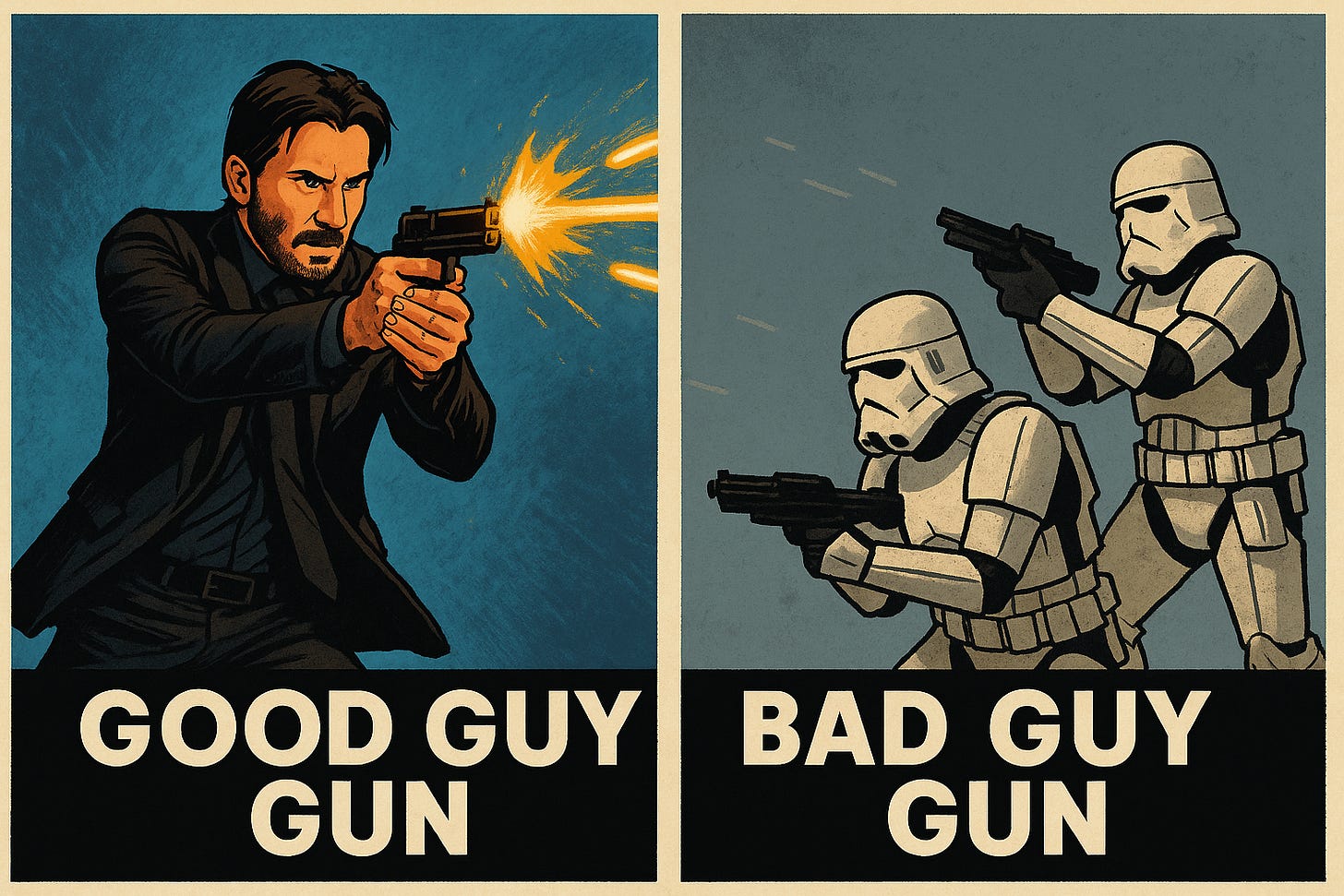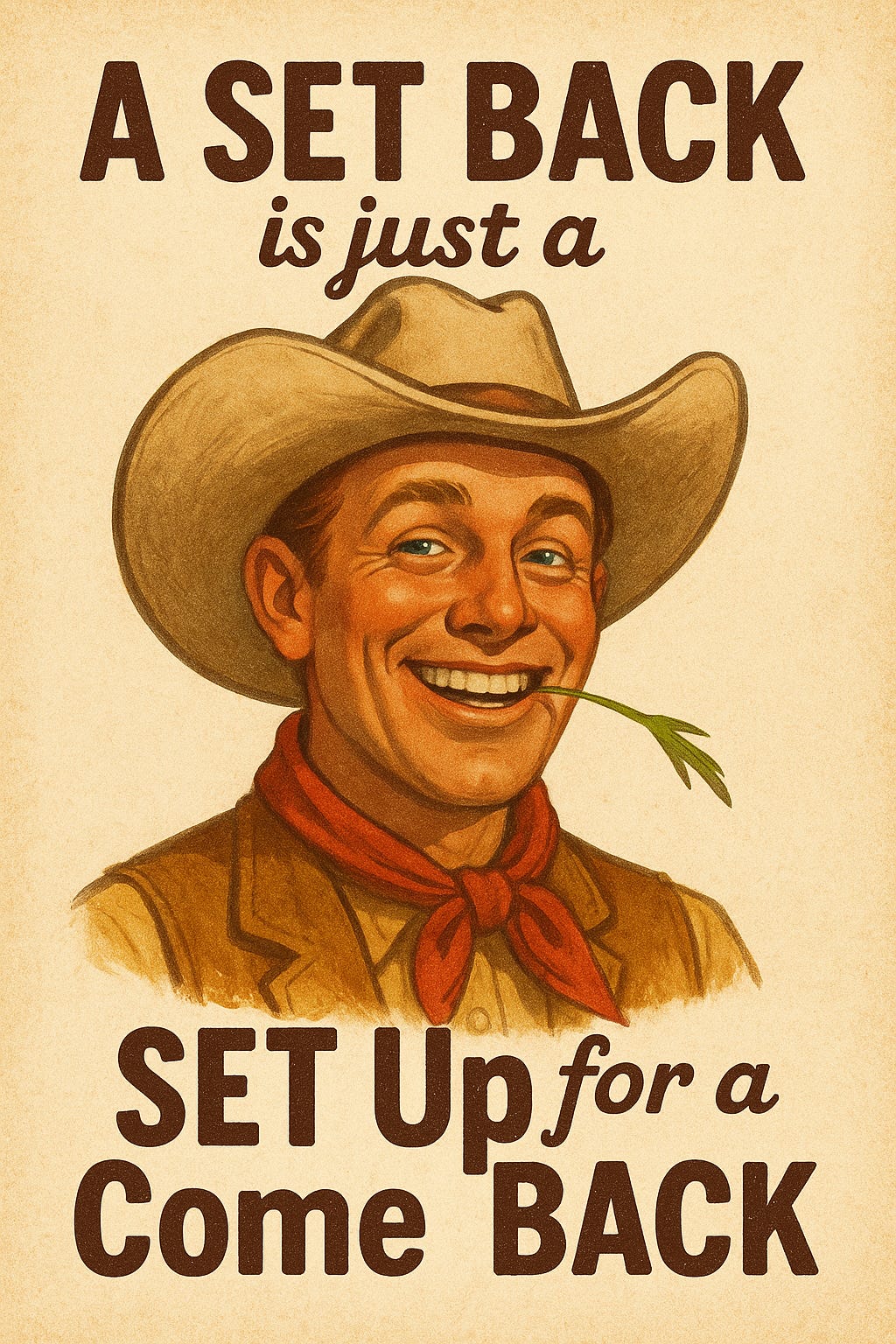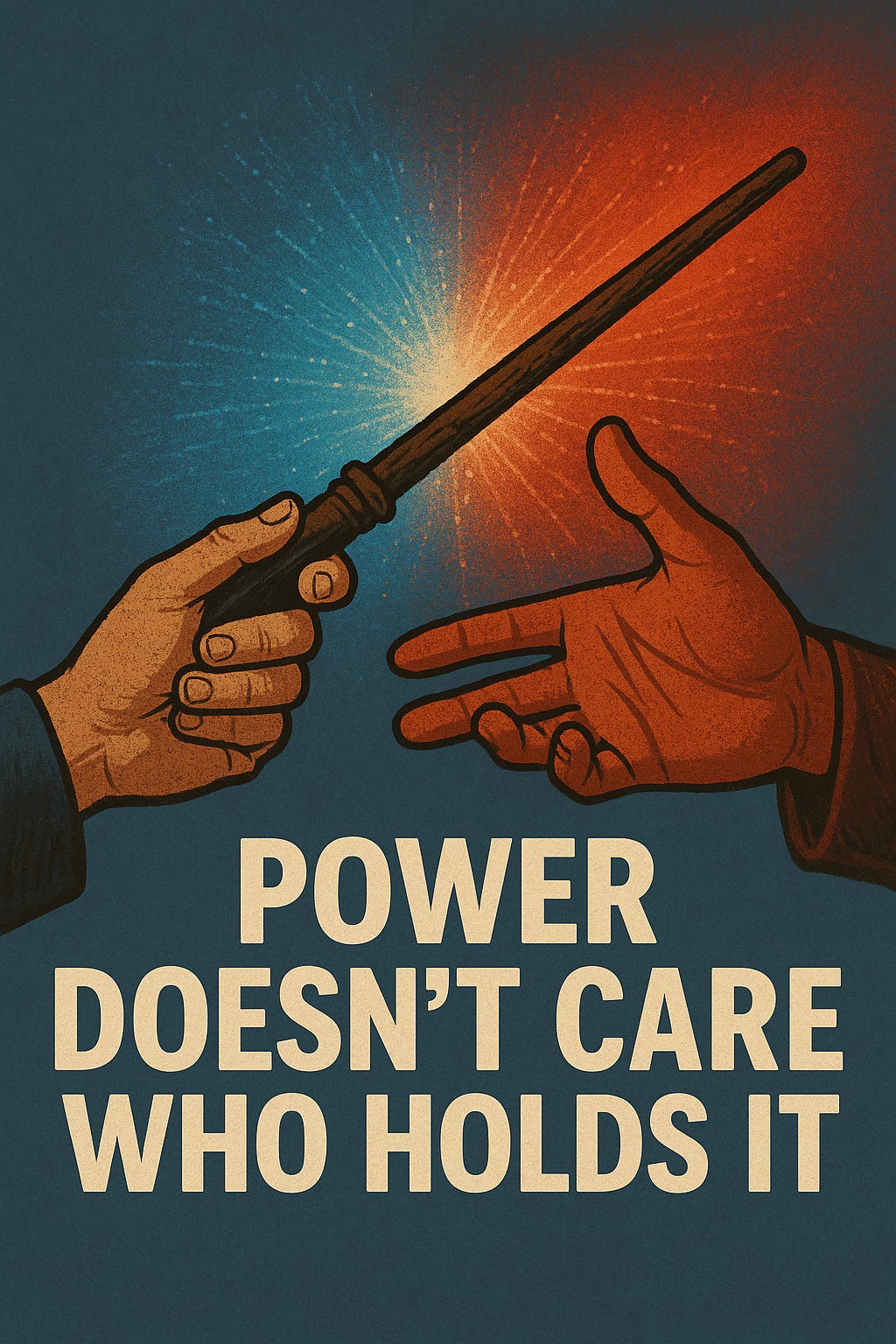Good Guy Guns and Freedom Bombs
How Pop Culture Trains Us to Excuse Atrocities
There’s a peculiar law in action movies: the Good Guy Gun never misses, never jams, and never runs out of bullets—unless it makes the hero look cooler.
Meanwhile, the Bad Guy Gun might as well be a Nerf blaster. It misfires. It runs dry. It can’t hit the broad side of a plot device. And if the bad guy drops it and the good guy picks it up? It starts working again.
This isn’t about firearms. It’s about relative moral alignment—a kind of magical realism where morality is not determined by behavior, but by who you are and what team you’re on.
If you’re the hero, your tools serve justice. If you’re the villain, your weapons betray you.
This Hollywood trope reflects a deeper cultural logic: Nationalistic Morality.
In fantasy the good guy gun is a kind of deus ex machina that ensures success, and we carry that expectation over into the rationalization of our moral evaluations of those that wield power for and against our apparent interests. If they were bad, they wouldn’t be winning, right?
And because we know we’re right, the occasional setback is just the dramatic SETup for the comeBACK. Our moral purity ensures our eventual success.
Related Video
The Gun Doesn’t Care Who Holds It
In real life, a gun doesn’t care who pulls the trigger. Neither does a bomb, a surveillance program, or a prison cell. But our stories have conditioned us to believe otherwise.
In our foreign policy:
Our bombs are freedom bombs.
Their bombs are terrorism.
In our media:
Our soldiers are heroes.
Their soldiers are fanatics.
In our politics:
Our surveillance is national security.
Theirs is Orwellian tyranny.
This is the same logic as the Good Guy Gun. It's not about what’s done, but who does it.
And if the side switches—if a whistleblower criticizes the state, if a defector tells a different story—the moral coding flips with it. Like a wand in Harry Potter changing allegiance.
Which brings us to a familiar fantasy...
The Hogwarts Exception: Slavery and Selective Outrage
The Harry Potter series gives us a perfect metaphor for moral relativism.
House elves are enslaved. They’re magically bound to serve witches and wizards. When the “good guys” encounter this? They... kinda shrug.
Sirius Black’s family home proudly displays the severed heads of dead house elves as decor. This is brushed off as eccentric wizard racism—disturbing, sure, but not worth removing.
Hermione campaigns to free them. What happens? Everyone laughs at her. Even the author seems embarrassed by her morality.
Yet when the villains do the same thing—use magical slaves—it’s evidence of their evil.
So slavery is either horrifying or quirky, depending on who benefits. Sound familiar?
The Real-World Spell We’re Under
Hollywood teaches us that intention determines morality.
If the hero breaks the rules, it’s justified.
If the villain follows them, it’s menacing.
But real life doesn’t come with a soundtrack or costume change.
A drone strike doesn’t know which flag dropped it.
A prison cell doesn’t know whether it's in Alabama or Xinjiang.
A propaganda poster doesn't know if it's red, white, and blue—or red and yellow.
And yet, we keep telling ourselves:
“If we do it, it’s probably okay. If they do it, it’s evil.”
This is the same fantasy as the Good Guy Gun.
When the State Becomes the Hero of Its Own Story
Here’s the danger: once we’ve accepted this logic in our entertainment and media, we’re far more likely to accept it from the state itself.
We cheer when “our” side uses surveillance, censorship, or punishment against people we already dislike. But we forget that those tools don’t vanish when the other side takes power.
If we justify overreach because we trust the current administration, we’re laying the groundwork for future repression—possibly against us. That power doesn’t stay in the hands of the righteous forever.
A good guy gun becomes a bad guy gun the moment it changes hands.
That warrantless surveillance?
That censorship board?
That drone fleet?
They won’t magically reprogram themselves to protect your version of justice.
We don’t just need checks and balances for the villains.
We need them for the heroes, too.
When the Good Guy Picks Up the Bad Guy Gun
Sometimes the so-called villain tells the truth.
Sometimes the so-called hero commits atrocities.
But our moral filter is broken—we’ve learned to judge people by allegiance, not by action.
And until we unlearn that, we’ll keep confusing propaganda for patriotism and violence for virtue.
Final Thought
Good guys and bad guys aren’t decided by wardrobe, soundtrack, or special effects.
They’re revealed by what they do, and whether we’re willing to apply our values even when our own side violates them.
The Good Guy Gun doesn’t exist.
The Freedom Bomb doesn’t exist.
Only what’s done—and whether we have the courage to call it what it is.
📢 If this made you think (or flinch), share it.



